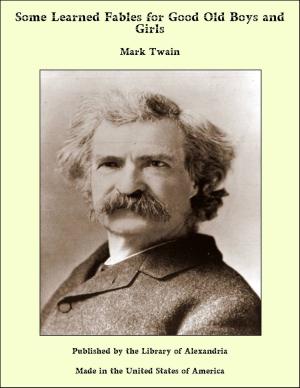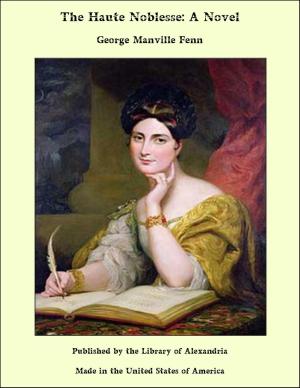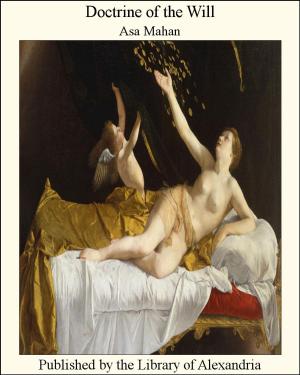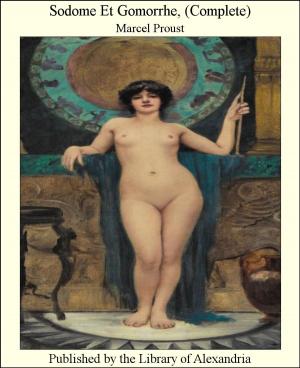| Author: | Samuel Taylor Coleridge | ISBN: | 9781465514035 |
| Publisher: | Library of Alexandria | Publication: | March 8, 2015 |
| Imprint: | Language: | English |
| Author: | Samuel Taylor Coleridge |
| ISBN: | 9781465514035 |
| Publisher: | Library of Alexandria |
| Publication: | March 8, 2015 |
| Imprint: | |
| Language: | English |
It is the honourable characteristic of Poetry that its materials are to be found in every subject which can interest the human mind. The evidence of this fact is to be sought, not in the writings of Critics, but in those of Poets themselves. The majority of the following poems are to be considered as experiments. They were written chiefly with a view to ascertain how far the language of conversation in the middle and lower classes of society is adapted to the purposes of poetic pleasure. Readers accustomed to the gaudiness and inane phraseology of many modern writers, if they persist in reading this book to its conclusion, will perhaps frequently have to struggle with feelings of strangeness and aukwardness: they will look round for poetry, and will be induced to enquire by what species of courtesy these attempts can be permitted to assume that title. It is desirable that such readers, for their own sakes, should not suffer the solitary word Poetry, a word of very disputed meaning, to stand in the way of their gratification; but that, while they are perusing this book, they should ask themselves if it contains a natural delineation of human passions, human characters, and human incidents; and if the answer be favourable to the author's wishes, that they should consent to be pleased in spite of that most dreadful enemy to our pleasures, our own pre-established codes of decision. Readers of superior judgment may disapprove of the style in which many of these pieces are executed it must be expected that many lines and phrases will not exactly suit their taste. It will perhaps appear to them, that wishing to avoid the prevalent fault of the day, the author has sometimes descended too low, and that many of his expressions are too familiar, and not of sufficient dignity. It is apprehended, that the more conversant the reader is with our elder writers, and with those in modern times who have been the most successful in painting manners and passions, the fewer complaints of this kind will he have to make. An accurate taste in poetry, and in all the Other arts, Sir Joshua Reynolds has observed, is an acquired talent, which can only be produced by severe thought, and a long continued intercourse with the best models of composition. This is mentioned not with so ridiculous a purpose as to prevent the most inexperienced reader from judging for himself; but merely to temper the rashness of decision, and to suggest that if poetry be a subject on which much time has not been bestowed, the judgment may be erroneous, and that in many cases it necessarily will be so
It is the honourable characteristic of Poetry that its materials are to be found in every subject which can interest the human mind. The evidence of this fact is to be sought, not in the writings of Critics, but in those of Poets themselves. The majority of the following poems are to be considered as experiments. They were written chiefly with a view to ascertain how far the language of conversation in the middle and lower classes of society is adapted to the purposes of poetic pleasure. Readers accustomed to the gaudiness and inane phraseology of many modern writers, if they persist in reading this book to its conclusion, will perhaps frequently have to struggle with feelings of strangeness and aukwardness: they will look round for poetry, and will be induced to enquire by what species of courtesy these attempts can be permitted to assume that title. It is desirable that such readers, for their own sakes, should not suffer the solitary word Poetry, a word of very disputed meaning, to stand in the way of their gratification; but that, while they are perusing this book, they should ask themselves if it contains a natural delineation of human passions, human characters, and human incidents; and if the answer be favourable to the author's wishes, that they should consent to be pleased in spite of that most dreadful enemy to our pleasures, our own pre-established codes of decision. Readers of superior judgment may disapprove of the style in which many of these pieces are executed it must be expected that many lines and phrases will not exactly suit their taste. It will perhaps appear to them, that wishing to avoid the prevalent fault of the day, the author has sometimes descended too low, and that many of his expressions are too familiar, and not of sufficient dignity. It is apprehended, that the more conversant the reader is with our elder writers, and with those in modern times who have been the most successful in painting manners and passions, the fewer complaints of this kind will he have to make. An accurate taste in poetry, and in all the Other arts, Sir Joshua Reynolds has observed, is an acquired talent, which can only be produced by severe thought, and a long continued intercourse with the best models of composition. This is mentioned not with so ridiculous a purpose as to prevent the most inexperienced reader from judging for himself; but merely to temper the rashness of decision, and to suggest that if poetry be a subject on which much time has not been bestowed, the judgment may be erroneous, and that in many cases it necessarily will be so















